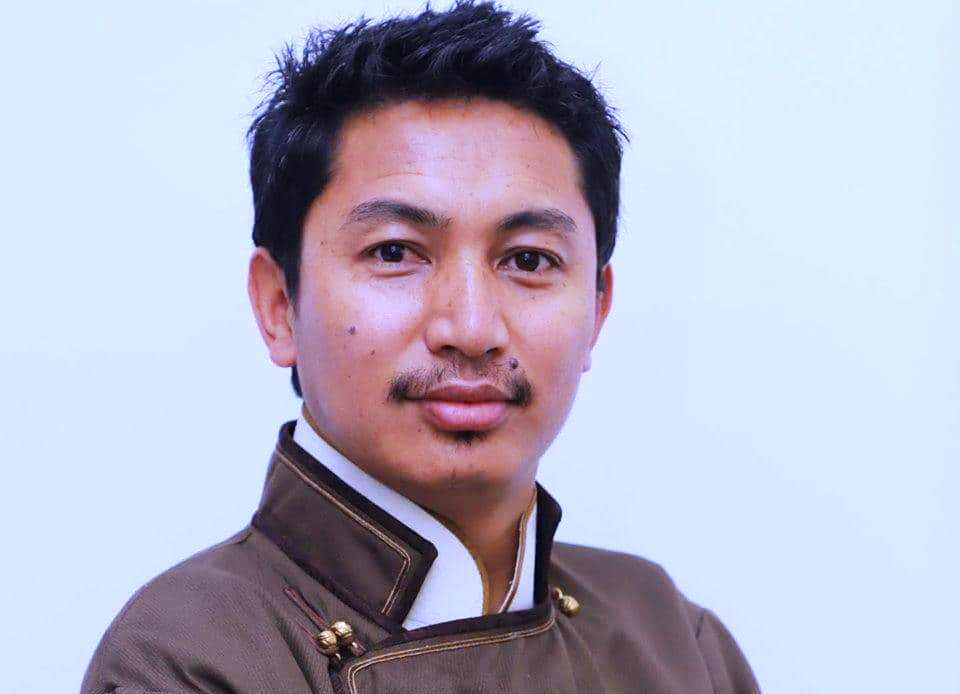Regional parties raise expectations and then fail to deliver. The stitching of the BJPDP alliance in 2014 and bloody aftermath in 2016, are key factors that pushed South Kashmir to an abyss of indifference. As people maintain a distance from regional players, is the situation ripe for the pan-India parties to fill the void, asks Shams Irfan
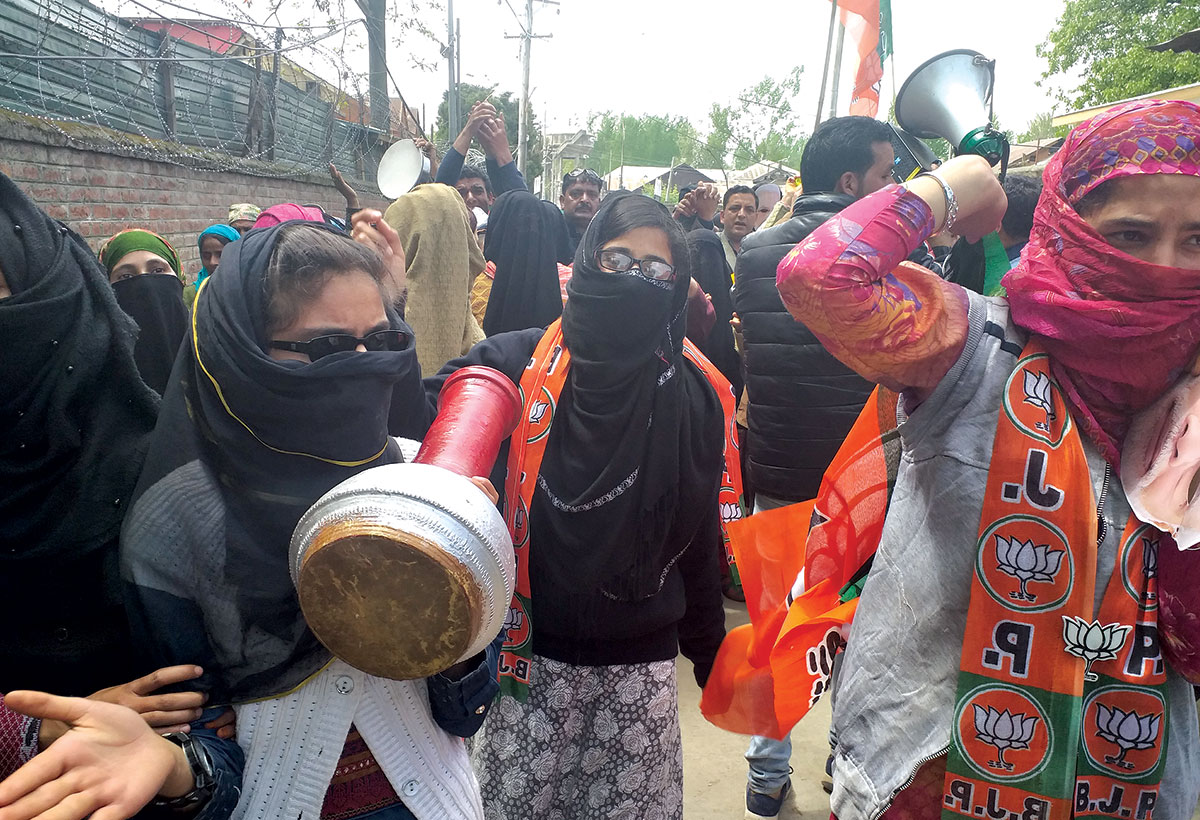
On the hot afternoon of April 23, the sarcasm in Congress’ General Secretary Hilal Ahmad Shah’s voice was hard to miss as he pointed out the absence of polling agents from Kashmir’s two key parties: NC and PDP, at most of the booths in Anantnag.
He had a busy day as first of three legs polling was underway in volatile south Kashmir Lok Sabah constituency. “When a regional political party couldn’t even manage polling agents on key booths, it tells a lot,” said Shah in a same sarcastic tone. “There is a lot of anger against these parties as they have betrayed people time and again.”
The anger peaked in July 2016 after Hizb-ul-Mujahideen commander Burhan Wani was killed in an encounter in south Kashmir. The events that followed left Kashmir bruised and bloody. Since then both NC and PDP are struggling to reconnect with people in the region. Most of the 714 polling booths had no polling agent from NC or PDP. “They couldn’t even get people to be their polling agents in most of the booths. This should give you an idea about their (NC and PDP’s) situation in south Kashmir,” said Shah sarcastically.
As the poll-day ended with just 13.61 per cent people exercising their right to vote, it rang alarm bells in all contesting parties, especially NC and PDP. The participation was quite peanuts in comparison to the last Lok Sabha polls in the region when half of the voters reported to the polling stations.
The dismal participation clearly shows how hard it is for regional parties to engage voters.
While regional parties find it hard to convince its core voters to come out and participate in the election process, it is national political parties like Congress and BJP who seemingly are filling the gap, in bits and pieces. “On the ground, people are largely indifferent towards Congress or BJP despite these parties actually calling the shorts in Delhi. Their anger is largely directed at PDP and NC,” said a PDP worker from Shopian. “It could be because people have more expectations from regional parties.”
These expectations were shattered post-2014.
Filling the Gap
Ahead of the second leg of polls for Kulgam, BJP’s candidate Sofi Yousuf is busy canvassing door-to-door in militancy hotbed areas. “It is 11 pm and I am travelling through Kulgam on way back to Anantnag after canvassing,” said Sofi Yousuf on phone proudly. “You cannot imagine how happy people are to see me among them. They have not been visited by any other politician so far. This area has been left at God’s mercy after 2016. They need to be reached out.”
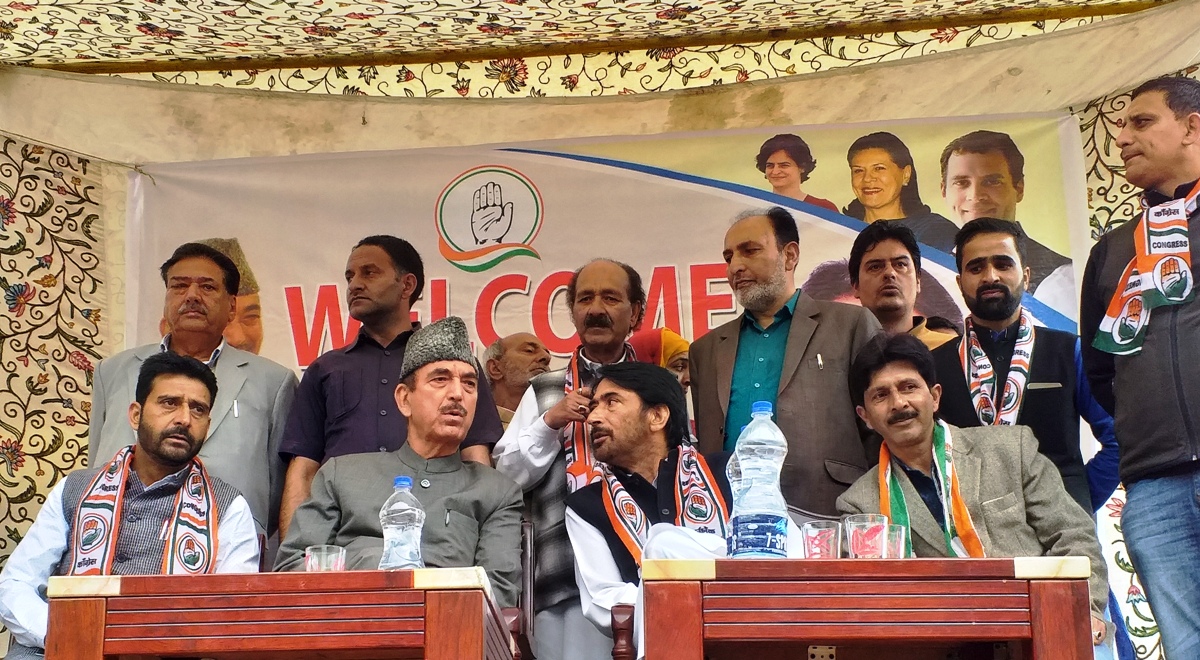
Sofi Yousuf, a former cop from Sirigufwara who joined politics in 1996 when militancy was at its peak, became BJP’s first Muslim lawmaker after he was nominated to Legislative Council in 2015. He has been contesting polls unsuccessfully since then.
“In 1989 it was NC’s hunger for power that forced Kashmiris to pick up a gun. And in 2016, it was PDP’s arrogance that rekindled militancy and forced another generation towards guns,” he said. “In between Kashmir has seen just deaths and destruction on a large scale.”
Despite low poll percentage on April 23, Sofi is confident to break his dry run and win the Anantnag seat! Sofi claims to have cultivated a strong base of BJP workers in last one decade to give it an edge in 2019 elections. “People in south Kashmir are fed up with divisive politics of NC and PDP, that is why they are joining us in large numbers,” he claims.
Interestingly, in February 2015, BJP’s then media in-charge Kashmir Altaf Thakur created a political storm of sorts by claiming that the saffron party has 3.05 lakh active members in Kashmir, with 50 thousand in Srinagar district only. “Sixty per cent of the members are in the age group of 20 and 28,” he claimed.
“People welcomed Mehbooba in south Kashmir with open arms as they had hoped she will work for their betterment. But when she became Chief Minister, she targeted the region,” Sofi said. “She further insulted their miseries by her toffee and milk remark.”
Losing Hope
In 2014, huge participation of voters in Kashmir region for Lok Sabha and state assembly elections was seen as a watershed movement after 1987 elections. This was mainly because of people’s expectations from Mufti Mohammad Sayeed’s PDP that rode to power on a number of promises including keeping BJP away. “They (PDP) talked almost like Hurriyat during election rallies,” said Imran, whose militant brother was killed in January 2019. “Even we had pinned our hopes on Muftis.”
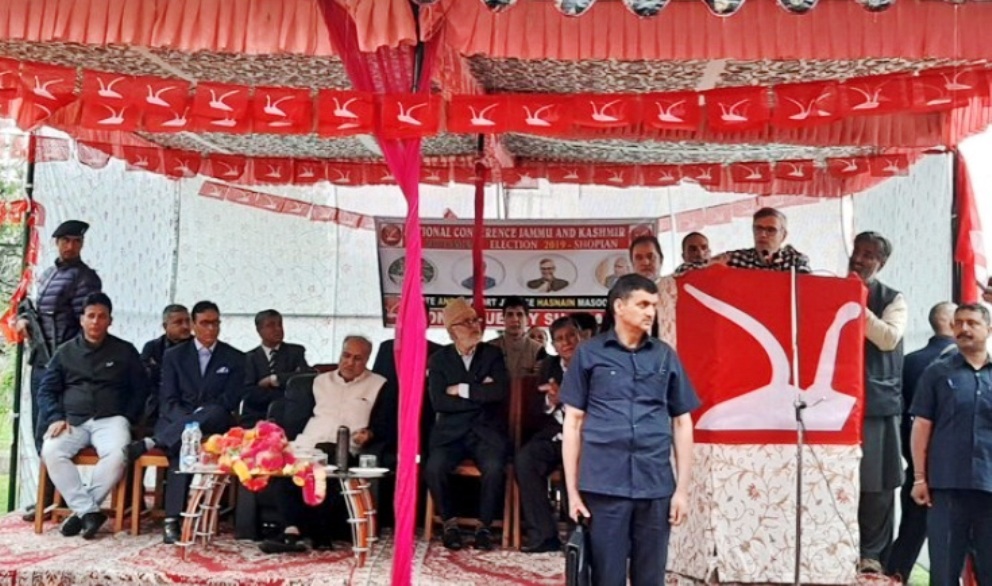
When the same PDP joined hands with BJP, people at large felt cheated. “They used people’s emotions and fears to reach the throne,” said Tahir, a businessman from Pulwama.
But the bumpy BJPDP coalition couldn’t last long. The first blow was Mufti’s death; the second was Mehboob’s iron-fist approach in 2016, which saw over a hundred civilians killed and thousands injured with pellets and bullets. “These killings pushed an entire generation of youngsters into militancy in south Kashmir,” said Imran.
As more youngsters joined militant ranks the frequency of encounters and counterinsurgency operations peaked too.
A number of garrisons were quickly installed across south Kashmir to keep a check on militant’s movement. Within a few months after Burhan’s killing situation reached such a boiling point in the south that people started to compare it with peak 1990s when killings were a routine. There is hardly any village left in south Kashmir which has not seen killing or a gun-battle since. “Living in south Kashmir is getting challenging with every passing day,” said a fruit trader from Shopian who refused to be named. “It is a miserable life.”
Among all this, politics and politicians were completely missing from the discourse. People have learnt to live without either of the two. Every gun-battle, civilian killing, cordon and search operation, ransacking of properties, pushed people further away from these politicians whom they have voted to power a few years back with hope and expectations.
“People are not just angry with any particular political party but with the whole system that is there after 2014,” said Mohammad Yousuf Tarigami, a former CPI (M) lawmaker from Kulgam. “They are angry with everyone between Delhi and Srinagar.”
But Tarigami believes there is no alternative to voting if people want to change things for better. “It (voting) is both an opportunity and option for people to express their anger in a democratic way,” feels Tarigami.
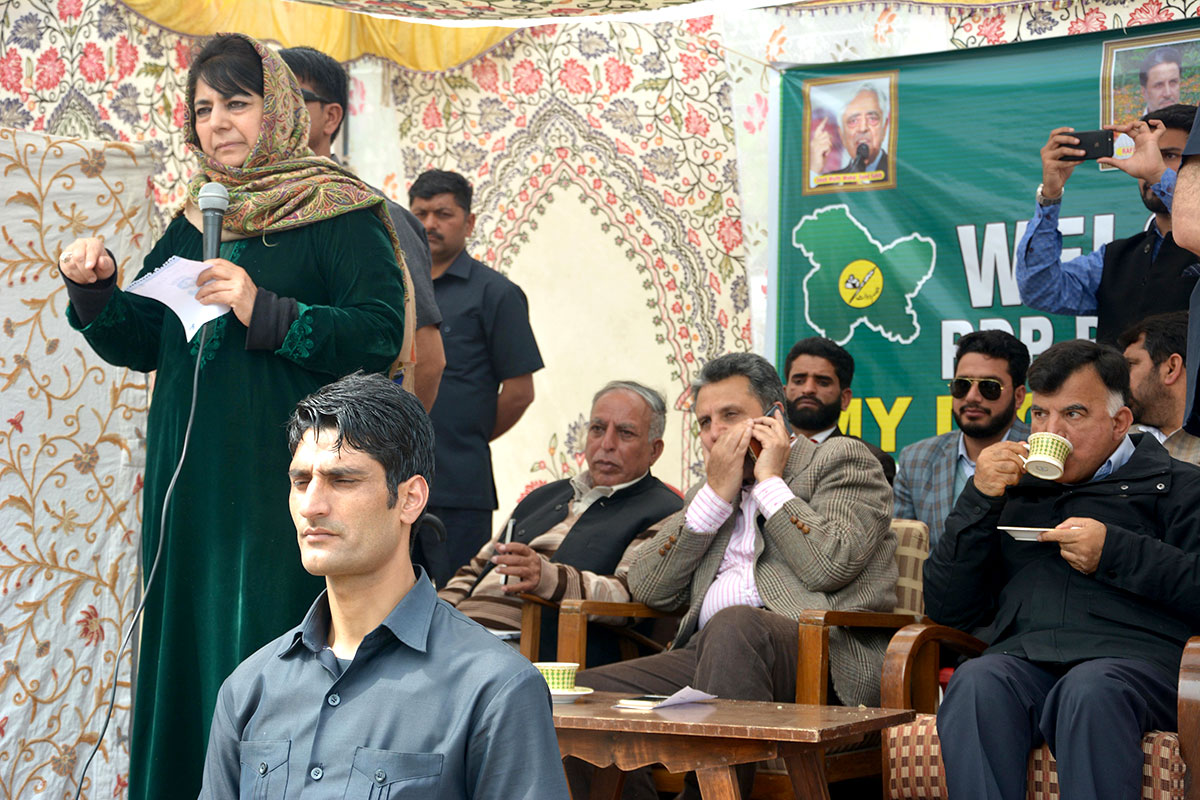
With voting slated on April 29, in Kulgam, Tarigami is sceptical about the participation of people in rest of the poll process in south Kashmir. “Thing will become clear on the day of polling itself. But I don’t think the voting pattern would be much different than what Anantnag saw recently,” said Tarigami.
“More than fear and anger there is indifference among people towards the entire process this time,” feels Tarigami.
Filling the Gap
After the killing of Burhan Wani, there was a complete political vacuum in south Kashmir where most of the civilian killings took place. With no local politician from either NC or PDP available to people, they were left on their own, or at the mercy of army and police. This free space was filled, rather exploited by Congress and BJP to an extent. “I have not left Shopian town even during peak 2016,” said Javaid Qadri, a local BJP leader who is busy chalking out a poll strategy for party’s candidate Sofi Yousuf. “In fact absence of NC and PDP gave me the opportunity to connect with people.”
At the peak of 2016 agitation almost every single lawmaker, current and former, cutting across party or ideology, took refuge in Srinagar. Quickly, a large number of party workers and cadre followed them. They were accommodated in Srinagar hotels at the expense of government. The situation was so bad that they were not even able to meet their extended families, as any association with politicians had serious repercussion in bruised south Kashmir. Only a small number of political activists stayed put in their houses, but not before they were made to announce their disassociation from politics on mosque loudspeakers during Friday prayers. This all happened in the first two months after Wani’s killing as streets were ruled by youngsters.
But once the government started to take back control on the streets, and off it, a large number of people were rounded up and put behind the bars. They were charged with a wide range of crimes, from pelting stones to causing damage to government properties. When the 2016 agitation started to die down after around six months of lockdown, these youngsters felt left alone. “There was no politician or political activist around who could have pleaded their cases,” said Sajjad, whose cousin was picked up by forces in late 2016. “We had to manage things on our own to secure the release of our kin.”
That is where BJP and Congress came into play, though on a very small scale. These politicians not only intervened and got people released but also stayed in contact with the people. “Everyone knew BJP has more say in Kashmir than any other party right now,” said Sajjad.
But according to Sheikh Showkat, a political analyst, those annoyed with regional parties belong to the section who don’t vote. “Given the situation in the south only committed party workers will come out to vote, which has been the case most of the times in Kashmir,” feels Showkat.
Showkat sees recent polling percentage in Anantnag district as an indication of what to expect in remaining two legs of polls. “One can conclude that only 13 per cent people are with the mainstream politics right now. They will come out to vote no matter how bad the situation is,” said Showkat.
There is a considerable number of dedicated workers of NC, PDP and Congress in entire south Kashmir, who will determine the outcome in the absence of a huge turnout. “This election is between workers as normal people preferred to stay away,” said Showkat. “But I don’t see BJP’s presence in the area at all.”
BJP Scare
It seems that the political parties are following a written script to seek votes for ongoing Lok Sabha elections in Kashmir: the BJP scare! In 2014, PDP largely and NC to an extent used BJP bogey to get people out to vote.
The BJP-PDP alliance, which was stitched together after weeks of deliberations, was seen as the biggest betrayal by Kashmiris after 1975 Indira-Farooq accord. “They used fear of BJP as a tactic to get people to vote for them,” feels Showkat.
Since 2014, nothing much has changed as far as the election rhetoric by political parties is considered. Back then people were asked to vote to keep BJP out of Kashmir.
In 2019, political parties tell people if they don’t vote then BJP will scrap Article 370 and 35A. “But this tactics is not working as people can see beyond the rhetoric,” feels Showkat. But Sofi feels there is no reason for people to be afraid about as abrogating Article 370 and 35 A is there in BJP’s manifesto since its inception in the 1950s. “If they would have wanted to fiddle with Kashmir’s exclusivity, they would have done so long time back. I assure you it is not an issue. BJP’s main aim is to heal the people of Kashmir and develop it,” claims Sofi. “It was NC who turned Mohammad Yousuf Shah into Syed Salahuddin, not BJP. If people should be scared of anyone it is NC and PDP, who has done more harm to Kashmir than anyone else.”
Given the fact that no political party, NC, PDP, Congress or BJP, has been able to camp openly in any part of south Kashmir tells a lot about the mood on the ground. It remains to be seen who will fill the political void in Kashmir’s most volatile region. “People are aware that politics nowadays all about give and take. I am sure people will come out to vote to improve their situation,” said Sofi, as he drives through dark and deserted roads of Kulgam in his official vehicle flanked by his guards.


